
 Flash News
Flash News
EULEX mandate in Kosovo extended until 2027
Drug trafficking network dismantled, 11 arrests in Foggia, an Albanian at the center of the investigation
The race for the head of the BKH, the deadline for applications ends today
He injured the married couple in Rrogozhina, here is who the perpetrator is
He injured his neighbors with a gun, the perpetrator surrendered to the police

In Albania, the 2023 Census data, published recently, testify to a significant decrease in the number of inhabitants, a large part due to the high level of immigration. According to INSTAT data, only from 2018 to 2022, about 195 thousand people left Albania. One of the most affected areas is Malësia e Madhe. The Albanian-American researcher Lulash Palushaj presented in Malësi i Madhe his latest book dedicated to the scourge of immigration in this area.
The Albanian-American researcher and writer Lulash Palushaj, author of 15 books dedicated to the history and traditions of the Great Highlands, presented today to researchers and authorities from the Great Highlands, here and there the current state border, his latest book " Where did you go, O Great Highlands, is there, O Albanian", dedicated to what he calls the greatest wound of the Highlanders, emigration.
"The biggest wound is that we left those old people in empty houses. The most serious wound is the tears that the elders shed about where the people of the house are. That there can be no home without people and people without their homeland. This is the most important thing that I have reflected in this work", he says.
For the vice-mayor of the "Malësi e Madhe" Municipality, Sytki Ndreca, researcher Palushaj has managed to touch on one of the main problems that Malësi e Madhe continues to have.
"Fleeing and emigration outside the territory of Malësi e Madhe, but also outside Albania, in emigration, in the diaspora, has taken on a large scale, what is happening is very scary", he says.
The deputy mayor says that the latest data, published by the population and housing census, also prove the extent of the departure of residents from Malësia e Madhe, both towards emigration and to other areas in the interior of the country.
According to the 2023 census, Malësia e Madhe has 21,640 inhabitants, or less than 15,000 inhabitants compared to 2011 and about 32,000 less than the 1991 census.
The participants from Albanians in Montenegro emphasized during the meeting that the topic of emigration is worrying for the mountaineers living on both sides of the border and that the treatment of this topic is related to the need to stop the depopulation of Albanian lands.
"This topic is a disturbing phenomenon even for Lulash because he himself is living the emigration to the USA. In almost most of his works, he deals with the fate of the mountaineers, both over there and over the border", says Rrok Gjolaj. advisers in the Ministry of Education in Montenegro.
Albania, says Lulash Palushaj, has natural and economic potential to keep Albanians in its country, but it is necessary to promote employment and use natural resources for the benefit of development.
Poet Mimoza Rexhvelaj, a resident of Malësi e Madhe, says that there are already villages in the highlands that have been left empty due to the abandonment and departure of the inhabitants towards emigration, mainly to America and England. Therefore, Lulash Palushaj's last book, she says, is a cry for changing this reality.
"The cry and howl, in fact, that Professor Palushaj makes in his book, is return to the homeland, return to the threshold, return to the family, to the mother, to the father who are waiting for you".
INSTAT data show that, from 2011 to 2023, Albania has about 600 thousand fewer inhabitants. While within a period of 5 years, from 2018 to 2022, 194,900 people have left Albania, with an average of about 39,000 people per year. VOA
Latest news



Couple injured in Kavaja, police find firearm hidden in wall
2025-06-06 19:05:19

EULEX mandate in Kosovo extended until 2027
2025-06-06 17:58:20
These are the 3 zodiac signs that will be favored in the next decade
2025-06-06 17:50:52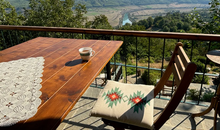


Anthropology
2025-06-06 17:06:00
EU supports International Criminal Court after US sanctions
2025-06-06 16:47:51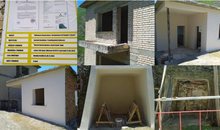
Gonxhe ignores concerns about Spaçi and defends the continuation of the works
2025-06-06 16:31:42
Providing online services, report: Institutions, delays in update requests
2025-06-06 16:24:10

The head of the Vlora Cadastre is changed again
2025-06-06 15:58:49
With a rounded belly, Dafina Zeqiri enjoys the holidays with her partner
2025-06-06 15:36:06

Foods that should not be missing from the Eid al-Adha table
2025-06-06 15:04:48
They exploited girls for prostitution in Vlora, 28-year-old arrested
2025-06-06 14:44:26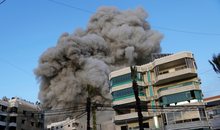
Israel warns of more attacks in Lebanon
2025-06-06 14:26:30
The race for the head of the BKH, the deadline for applications ends today
2025-06-06 14:15:18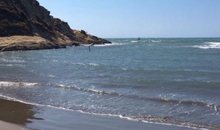
14-year-old girl in Vlora rescued after risking drowning at sea
2025-06-06 14:04:23
Challenge with Albania, Serbian team arrives in Tirana
2025-06-06 13:49:04
He injured the married couple in Rrogozhina, here is who the perpetrator is
2025-06-06 13:34:20

Berisha wishes Eid al-Adha: Blessings to your families and our nation
2025-06-06 13:09:28
He injured his neighbors with a gun, the perpetrator surrendered to the police
2025-06-06 13:02:47

Tom Cruise enters Guinness World Records
2025-06-06 12:38:48
From orange peels to bananas, discover the foods that help you with stress
2025-06-06 12:28:53


How did the feud between Donald Trump and Elon Musk start?
2025-06-06 11:52:32
The prosecution sends 5 Kosovar citizens to trial for drug smuggling
2025-06-06 11:33:56
21-year-old injured with knife in Saranda
2025-06-06 11:24:10
Kosovo citizens flock to the Albanian coast, long queue from Morina
2025-06-06 11:11:07
Gunfire in Kavaja, shot at a married couple
2025-06-06 11:05:01
Merz: Bashkëpunim i ngushtë Gjermani-SHBA
2025-06-06 10:45:35
A marijuana plantation is found in Cakran, a 24-year-old man is arrested
2025-06-06 10:25:53
Gianni De Biasi shows the formula for how we can win against Serbia
2025-06-06 10:08:57
Hoxha: The CEC was one of the main architects of the destruction of free voting
2025-06-06 09:52:16
Foreign exchange, June 6, 2025
2025-06-06 09:33:01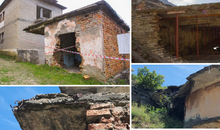


Accident on the new Kukes bridge, three vehicles collide
2025-06-06 08:43:06
Horoscope, what do the stars have in store for you today?
2025-06-06 08:28:14
Clear weather with few clouds, the forecast for this Friday
2025-06-06 08:13:54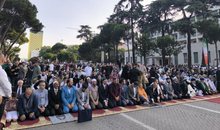

Morning Post/ In 2 lines: What mattered yesterday in Albania
2025-06-06 07:46:29
In trial for tender abuse, socialist MP targets ILD
2025-06-05 22:37:09
Tabaku: The left in Albania has shown with facts that it is against integration
2025-06-05 22:09:44

Uzbekistan qualifies for the World Cup for the first time
2025-06-05 21:14:35
Index: Albania among countries that consistently violate workers' rights
2025-06-05 20:53:35
Accident in Burrel, two vehicles collide, 6 injured
2025-06-05 20:31:27
Discover foods that help you relieve stress
2025-06-05 20:16:34
Kalaja: I have a video where votes were taken from the DP and given to the PS
2025-06-05 19:58:04
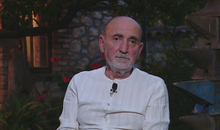

Berisha: The international community does not accept the farce
2025-06-05 18:57:18
Trump after conversation with Xi: US and China will resume trade talks
2025-06-05 18:35:36
Berisha on May 11: 28 MPs were under the patronage of drug cartels
2025-06-05 18:15:44
The session in the Assembly closes, the majority approves the draft laws alone
2025-06-05 17:55:21
Kurban Bajrami, kreu i Komunitetit Mysliman të Shqipërisë uron besimtarët
2025-06-05 17:29:17

Media at OSCE conference: Organized crime has captured the Albanian state
2025-06-05 16:50:41
Car hits 75-year-old man at white lines in Vlora
2025-06-05 16:42:48
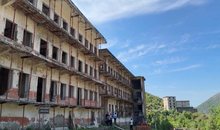
Protest in Spaç, after restoration interventions
2025-06-05 16:27:49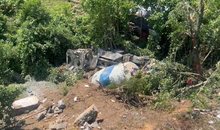
Photo/ Concrete mixer falls into abyss in Ulëz, driver rushed to hospital
2025-06-05 16:15:15
May 11/ Këlliçi: There are attempts to influence the final OSCE-ODIHR report
2025-06-05 16:06:38
Immigration is emptying schools and universities
2025-06-05 15:53:38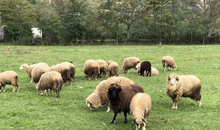
Plague breaks out, Kosovo bans import of sheep and goats from Shkodra and Kukësi
2025-06-05 15:48:23
After Tirana, KAS also decides to open the ballot boxes in Dibër
2025-06-05 15:31:03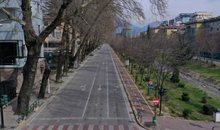
Tirana is "paralyzed" again, here are the roads that will be blocked tomorrow
2025-06-05 15:20:12



Serbia is coming to Albania tomorrow, here's where it will be accommodated
2025-06-05 14:24:43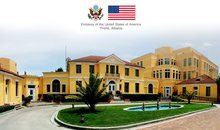
US Embassy updates visa appointment system: More flexibility for applicants
2025-06-05 14:21:01

Drug trafficking with "tentacles" in Europe, GJKKO seals prison for 9 arrested
2025-06-05 13:39:35
Deserting from the socialist ranks, Erion Braçe "becomes" a Democrat
2025-06-05 13:23:49
May 11 elections, KAS decides on a full recount of votes in Tirana
2025-06-05 13:22:28

Clashes in the Parliament/ Elisa Spiropali expels Flamur Noka from the session
2025-06-05 13:04:42
A Girl, Otherwise, A Boy
2025-06-05 12:57:30
Accident at the "Albchrome" factory in Elbasan, three people arrested
2025-06-05 12:54:40
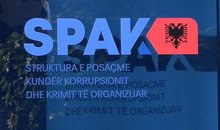

Berisha: The law of farce is that the dictator's votes are always increasing
2025-06-05 12:19:16


The murder saga, Alibej: It started after I gave Talo Çela's location
2025-06-05 11:45:27

Muslims celebrate Eid al-Adha, KMSH announces where prayers will be held
2025-06-05 11:24:50
Bardhi: The EU delegation said that crime controlled the elections in Elbasan!
2025-06-05 11:16:51


Journalists were censored by Spiropali, AGSH: Fraud and institutional propaganda
2025-06-05 11:00:20
